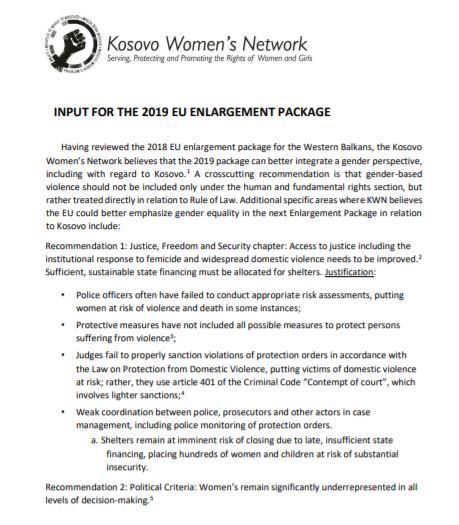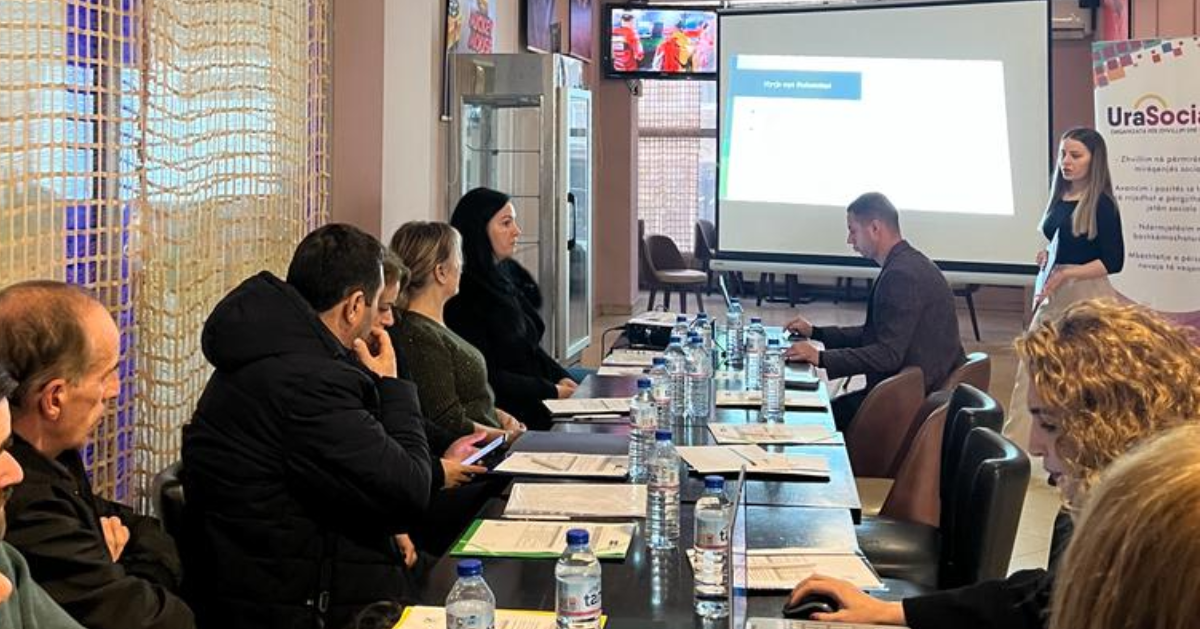The European Parliament (EP) Committee for Women’s Rights and Gender Equality (the “FEMM Committee”) adopted a new Resolution on Women’s Rights in the Western Balkans on 23 Jan., authored by Croatian MEP Biljana Borzan, rapporteur for Women’s Rights.
Informed by significant input from the Kosovo Women’s Network (KWN), in close cooperation with the Kvinna till Kvinna Foundation and partner women’s rights organisations in the region, the resolution addresses gender-based violence, poor access to justice, women’s low level of participation in politics and women’s underrepresentation in the labour market.
“This Resolution is of great importance to me. I have to make women of Western Balkans a priority of the European Parliament for years, and I am very glad that most of my requests, which I have formulated in cooperation with a number of non-governmental organisations from the region, has been adopted,” said Biljana Borzan, quoted by European Western Balkans news.
In order to inform the resolution, women’s rights groups undertook a rapid, intensive consultation process. KWN consolidated the input, which reflected the real situation of women in Western Balkan countries and called for responsible institutions to take specific measures.
“It was a short time-frame and very intensive process,” said Nicole Farnsworth, KWN Program Director / Lead Researcher who compiled the input. “However, the solidarity and activism of women’s rights groups working together throughout the region has contributed to an EP resolution that raises several issues important to furthering women’s rights in the region. We hope that government officials will heed this call to action.”
Following input from KWN and its civil society partners in the region, the resolution encourages national governments, the EU and other relevant institutions to further women’s rights in all areas.
It highlights “the need of women holding positions at all levels of society and effectively participating in decisions-making processes; points out that equal participation, including in high-level management and political positions is a pre-condition of a more inclusive, balanced and representative society; [and] encourages therefore the governments to immediately take measures to increase women’s participation in political decision-making at all levels”.
The resolution includes KWN and other activists’ observation that while the legal framework related to gender equality has improved in the region, there is still a lack of implementation.
Importantly, the resolution underlines the crucial role of women’s empowerment in stabilisation processes and conflict resolution, emphasising many recommendations that KWN has made and continued to reiterate in its advocacy over the last two decades.
For example, the resolution asks “Countries to involve more women as experts in negotiations and dialogues between states, as well as in consultations with citizens regarding their priorities in such discussions; urges WB governments and EU actors to develop a comprehensive approach to improve the status of all women victims of war, ensuring their participation in all processes related to stabilization, conflict prevention and inter-state dialogue; and to highlight the need for easy access to justice and transitional justice focusing on women survivors of conflict-related sexual violence.” These are all key points that KWN requested be included in the resolution.
Further, the resolution “calls on the Western Balkans countries to adopt legislation that guarantees equal inheritance rights for women and men” and “stresses the need for awareness raising campaigns among women to keep them well informed on how they can access these rights.”
Other issues brought forth by women’s rights groups that were included in the resolution include: insufficient allocation of financial resources for addressing gender-based violence, shelters and discrimination; the need for women and LGBTQI persons in the Western Balkans to have a more prominent role in political, economic and social life at all levels; and the importance of affordable, accessible quality education from an early age. Moreover, the resolution and calls on authorities to promote better understanding about equality among women and men at school and university through adequate guidelines.
Women’s rights groups said they are “proud” to see that the newly adopted resolution has taken into account much of their input, including calls for action.
The unique opportunity to be directly involved in this process came as a result of several years of advocacy, during which women’s rights groups have built relations with various officials within the European Union, supported by the Kvinna till Kvinna Foundation with financial support from Sida.
The last such resolution on women’s rights in the Western Balkans was passed in 2013.







